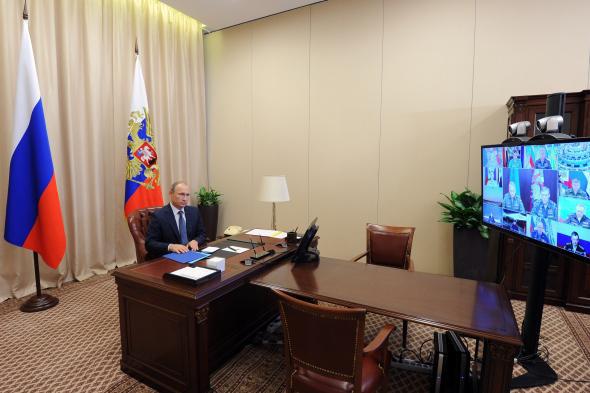While the Kremlin has ruled out direct military retaliation to Tuesday’s downing of a Russian fighter jet by Turkey, it has begun taking steps to respond to what Foreign Minister Sergei Lavrov suggested was a “planned provocation.”
Some of these steps are entirely symbolic—Russian tour groups are canceling Turkey trips and the Russian Parliament is debating criminalizing denial of the Armenian genocide, a sore subject for Turkey. Others are more consequential: Vladimir Putin has ordered state-of-the-art missile defense systems to be deployed to Russia’s base in Latakia, Syria, capable of shooting down Turkish jets up to 400 kilometers away. (The base is only 50 kilometers south of the Turkish border.) It has also deployed one of its largest air defense ships just outside Turkish waters in the Mediterranean and cut off all military-to-military communication with Turkey.
Both sides have publicly expressed a desire to de-escalate the situation, but these steps have likely increased the likelihood of dangerous incidents in the increasingly crowded skies over Syria. Even if Russia doesn’t intend to retaliate directly, the new anti-aircraft systems in the area, the lack of communications between the two militaries, and the heightened atmosphere of tension make another incident where the two sides start shooting at each other all the more likely.
And this isn’t just a Russia-Turkey problem. The U.S. and NATO have both backed Turkey’s version of events—that the Russian jet transited Turkish territory before it was fired upon—and affirmed their ally’s right to defend its own airspace. The Russian government, meanwhile, has inferred that NATO was complicit in Turkey’s actions. The Russian military had just begun to share information about its airstrikes with its U.S. counterparts after weeks of talks about the “deconfliction” of their respective operations. With Russian officials not so subtly inferring U.S. culpability in the incident, they’re less likely to maintain open lines of communication, particularly as Russia continues to attack rebel groups in Syria, some of which have received U.S. backing.
Neither side may want to escalate the situation further, but they also may not be able to control what happens next.
